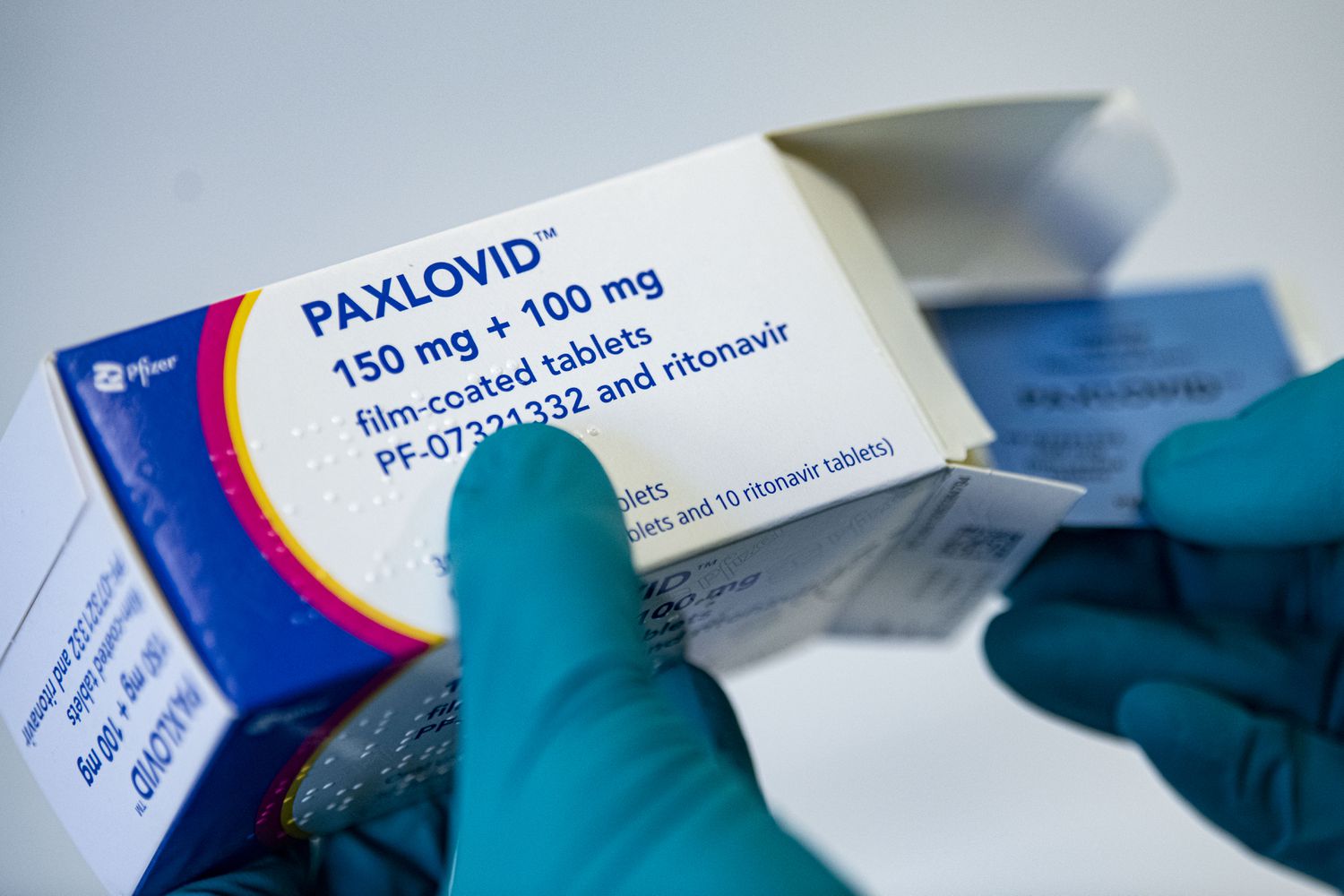Evaluating Paxlovid's Efficacy Against COVID-19 Variants

Antiviral treatments like Paxlovid (nirmatrelvir) seem to be effective against emerging strains of SARS-CoV-2, which is the virus that causes COVID-19. Researchers have updated vaccines and public health strategies to adapt to the new virus strains as COVID variants have emerged.
COVID strains—such as Omicron, Delta, or EG.5 and BA.2.86—have slight differences. These variants sometimes evade the fighting powers of certain treatments. Research has shown that Paxlovid is still a useful way to fight infection, as vaccines are updated and monoclonal antibody treatments are made ineffectual.
Research has found that Paxlovid is highly effective at reducing hospitalization and death from severe COVID infection in high-risk groups. Read on to learn why Paxlovid is effective against mutating strains of the virus.
In a study published in September 2023, researchers found that Paxlovid and another antiviral called Lagevrio (molnupiravir) reduced hospitalizations and death. The study authors looked at a cohort of 68,867 people who were at high risk of developing severe COVID and tested positive at the Cleveland Clinic between April 1, 2022 and February 20, 2023.
The study showed that the antiviral medications worked, even as Omicron evolved from BA.2, BA.4, and BA.5 when the data collection started, to XBB and XBB.1.5. These results build on other studies that have come to similar conclusions. A study published in January 2023 checked Paxlovid's efficacy against Omicron between January and July of that year. Omicron had become the dominant strain and was widely circulating in the U.S. at that time.
This study found that the roughly 12,500 people who took Paxlovid were 44% less likely to be hospitalized or die from COVID, as compared to those who didn't take the medication.
These studies did not include EG.5, FL.1.5.1, and HV.1, but experts agreed that the drug is still able to fight these Omicron variants. 'All data to date shows the active drug in Paxlovid, nirmatrelvir, remains effective,' Michael Mina, MD, PhD, immunologist and chief science officer of eMed, told Health.
The mutations in SARS-CoV-2 have mostly been in the virus's spike protein found on the surface of the virus. The spike protein allows the virus to enter healthy cells, which is the first step to infection.
This spike protein is what's targeted by vaccines. This allows the vaccine to lower the risk of infection or severe illness from the disease. This protection becomes less effective as the virus mutates.
Paxlovid works differently. 'Paxlovid actually works on a protein that the virus needs to be able to replicate and spread,' Thomas Russo, MD, SUNY distinguished professor of medicine and chief of the division of infectious diseases at the Jacobs School of Medicine at the University at Buffalo, told Health.
This protein, called a protease, has remained mostly unchanged across variants. 'Not all of them, but most of the changes we see in the circulating variants are focused on the spike protein,' said Dr. Russo.
Paxlovid targets the protease rather than the spike protein, so it's remained consistently effective. However, future COVID variants could contain mutations in the proteases, which would hamper Paxlovid's efficacy.
A main concern is that frequent use of the antiviral drug could lead to strains of COVID that are resistant to Paxlovid, but this doesn't seem to be the case. 'We haven't seen any resistant strains that were selected out as a result of treatment with Paxlovid so far,' said Dr. Russo. 'It is the drug of choice [for] people that are able to take it.'
Paxlovid remains effective at curbing severe COVID, but 'the majority of people who could benefit aren't taking it,' Scott Dryden-Peterson, MD, medical director of COVID outpatient therapy at Mass General Brigham, told Health. Dr. Dryden-Peterson co-authored the January 2023 study on Omicron and Paxlovid.
As of August 2024, about 22.6 million Paxlovid and Lagevrio courses had been delivered to distribution channels, but only about 14.8 million had been administered. Part of this is due to misinformation surrounding the drug, primarily due to fear of Paxlovid 'rebound.' This recurrence in COVID symptoms may occur after a course of the drug has been completed.
This rebound has been documented among people who take antiviral treatment. The National Institutes of Health (NIH) has reported that it's unclear how frequent and severe this recurrence is.
It's also possible for symptoms to come back, even if someone isn't treated with antivirals. 'Rebound happens in both those who do and those who do not take Paxlovid. It's just more highly recognized in those who take Paxlovid because people are thinking about it,' said Dr. Mina.
Dr. Mina explained that Paxlovid isn't greatly increasing the risk of rebound. It's also rarely severe when rebound does occur after Paxlovid.
There isn't a reason not to take Paxlovid for those who are at risk for severe illness, and the risk of rebound shouldn't be a deterrent. 'Those rebounds are mild, though they are inconvenient,' said Dr. Dryden-Peterson. 'For the majority of people, it's worth it because Paxlovid drastically reduces the severity of COVID.'
It's important that cases are caught early to get the full benefits of reduced COVID severity. Paxlovid works best when you start taking it within five days of symptom onset.
Contact a healthcare right away if you're in a group that may receive antiviral drugs like Paxlovid. These groups include people at risk for severe COVID infection, such as those with health conditions like:
Testing yourself for COVID if you're feeling sick is key. This is especially true since many variants often present similarly to other mild respiratory illnesses. Get medical attention right away if you have severe symptoms like a blue face or lips, chest pain, or trouble breathing.
Paxlovid is an antiviral drug that helps reduce hospitalization and death from severe COVID infection. It's effective, even against emerging strains of SARS-COV-2. Mutations affect the spike protein found on the surface of the virus, but Paxlovid targets a protein called protease.
Talk to a healthcare provider about Paxlovid if you're at risk for severe COVID infection and develop symptoms. High-risk groups include people with a weak immune system, pregnant people, and those with conditions like asthma, cancer, or diabetes. Paxlovid is most effective if you start taking it within five days of the onset of symptoms.




